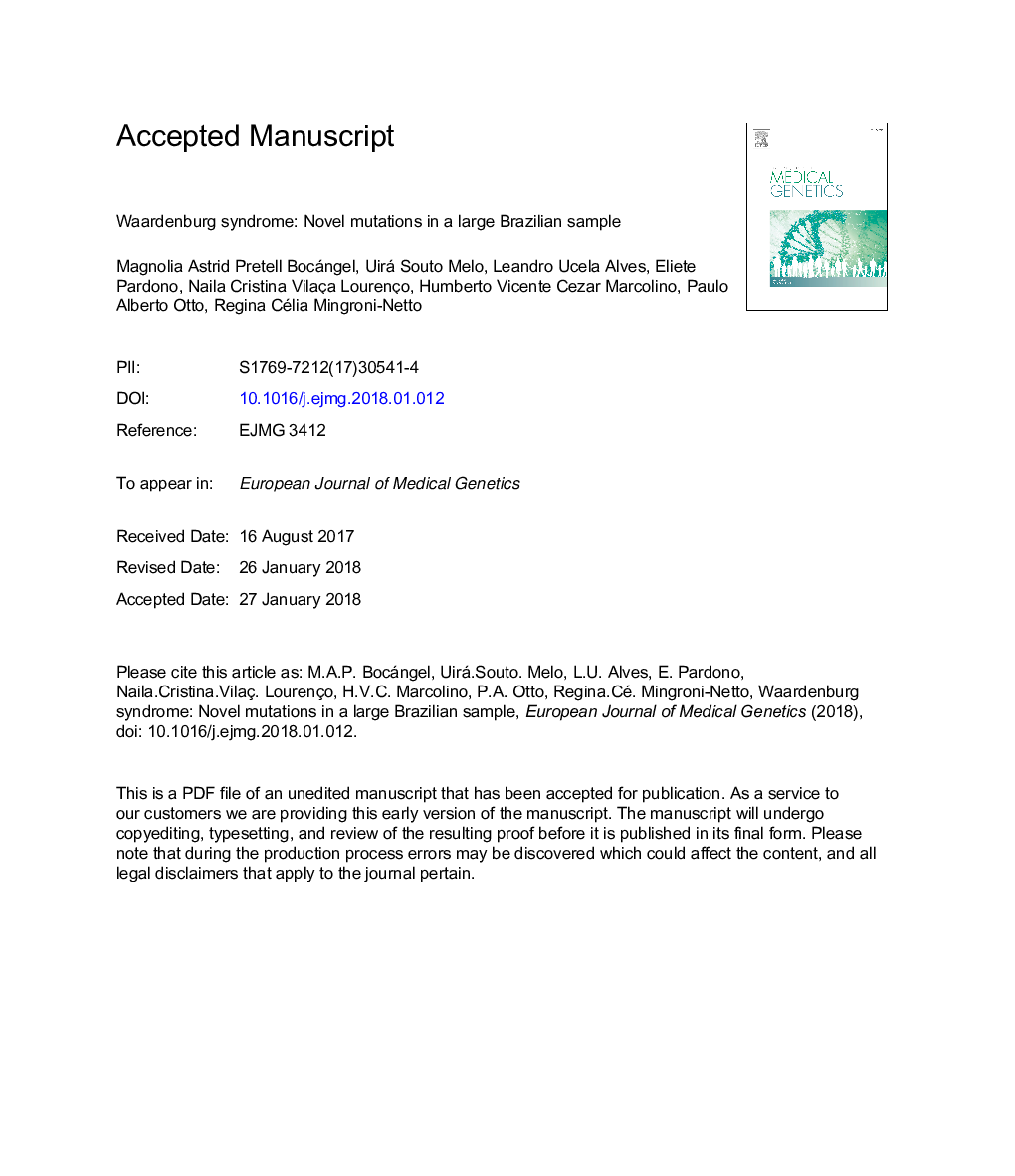| Article ID | Journal | Published Year | Pages | File Type |
|---|---|---|---|---|
| 8644240 | European Journal of Medical Genetics | 2018 | 26 Pages |
Abstract
This paper deals with the molecular investigation of Waardenburg syndrome (WS) in a sample of 49 clinically diagnosed probands (most from southeastern Brazil), 24 of them having the type 1 (WS1) variant (10 familial and 14 isolated cases) and 25 being affected by the type 2 (WS2) variant (five familial and 20 isolated cases). Sequential Sanger sequencing of all coding exons of PAX3, MITF, EDN3, EDNRB, SOX10 and SNAI2 genes, followed by CNV detection by MLPA of PAX3, MITF and SOX10 genes in selected cases revealed many novel pathogenic variants. Molecular screening, performed in all patients, revealed 19 causative variants (19/49â¯=â¯38.8%), six of them being large whole-exon deletions detected by MLPA, seven (four missense and three nonsense substitutions) resulting from single nucleotide substitutions (SNV), and six representing small indels. A pair of dizygotic affected female twins presented the c.430delC variant in SOX10, but the mutation, imputed to gonadal mosaicism, was not found in their unaffected parents. At least 10 novel causative mutations, described in this paper, were found in this Brazilian sample. Copy-number-variation detected by MLPA identified the causative mutation in 12.2% of our cases, corresponding to 31.6% of all causative mutations. In the majority of cases, the deletions were sporadic, since they were not present in the parents of isolated cases. Our results, as a whole, reinforce the fact that the screening of copy-number-variants by MLPA is a powerful tool to identify the molecular cause in WS patients.
Keywords
Related Topics
Life Sciences
Biochemistry, Genetics and Molecular Biology
Genetics
Authors
Magnolia Astrid Pretell Bocángel, Uirá Souto Melo, Leandro Ucela Alves, Eliete Pardono, Naila Cristina Vilaça Lourenço, Humberto Vicente Cezar Marcolino, Paulo Alberto Otto, Regina Célia Mingroni-Netto,
